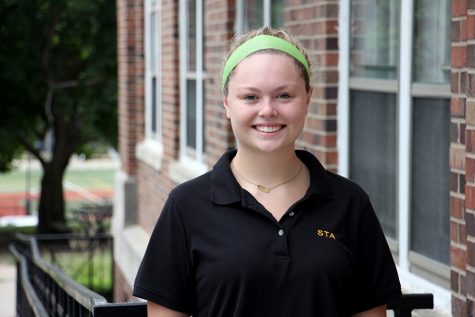Administration refines paperless policy
In an effort to increase productivity and decrease waste, new policy requires teachers reconsider what they require students to print.
February 7, 2016
Administration is currently revising a printer policy requiring teachers “reconsider what they are requiring students to print” according to Principal of Academic Affairs Barb McCormick. A staff-wide email informing teachers of the policy was prompted when parents and students alike reported difficulty in printing documents due to the 595 to one student-printer ratio, according to McCormick, who added that minimizing unnecessary printing also aids in STA’s environmental conservation.
“[Limiting printing] is an environmentally friendly direction to go based on the mission of the sisters,” McCormick said. “Let’s leave an environmentally sound footprint behind…Part of that is asking, can we save a few more trees?”
The email and policy were not prefaced by a “faculty meeting or discussion,” according to McCormick, and has stemmed some concern from teachers and students regarding what paperless looks like for STA.
“There have been studies that prove writing makes you learn better,” senior Sarah Wunder said, “If you’re a visual learner, you’re staring at a screen all day, which is bad for you. If you’re a tactile learner, you need to write to learn. That’s hindering two types of learners right there.”
photos by Paige Powell
[nggallery id=1174]
Spanish teacher Julia Gargallo, who considers the foreign language department “pioneers” of paperless as the first department to use online textbooks, is not concerned about the effect paperless might have on her classroom. However, Gargallo does believe the degree of technology exercised in the classroom should be left to teacher discretion.
“I think [use of technology in the classroom] is totally personal,” Gargallo said. “Each teacher should have the freedom to decide. I like my electronic books, but every teacher is different.”
McCormick echoed Gargallo’s sentiment, referencing both technological and traditional learning resources as tools provided to teachers.
“I fully respect teachers using their autonomy to choose which utilities are best for their curriculum and their lessons,” McCormick said. “It is still left in that teacher’s hand to determine what’s going to be best.”
Administration is in the process of planning a faculty meeting for open discussion on refining the printer policy and how the school will proceed with its paperless initiative.




